J. de Rosny
Time Reversal for Multiple Access and Mobility: Algorithmic Design and Experimental Results
Mar 29, 2022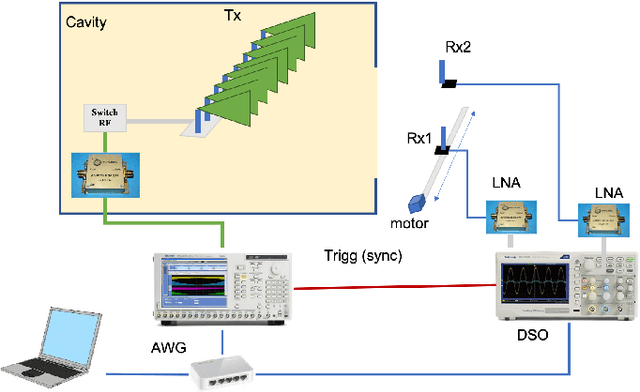
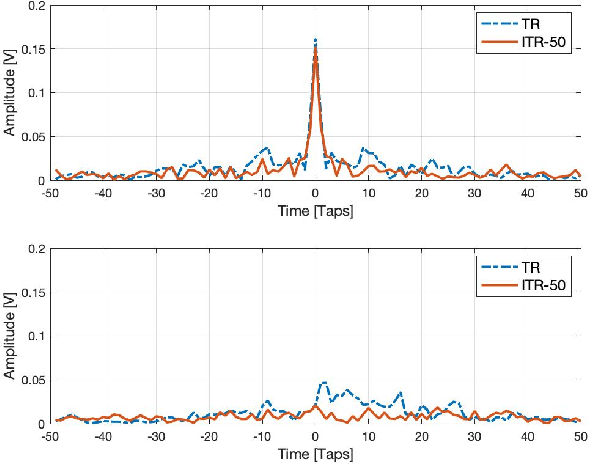
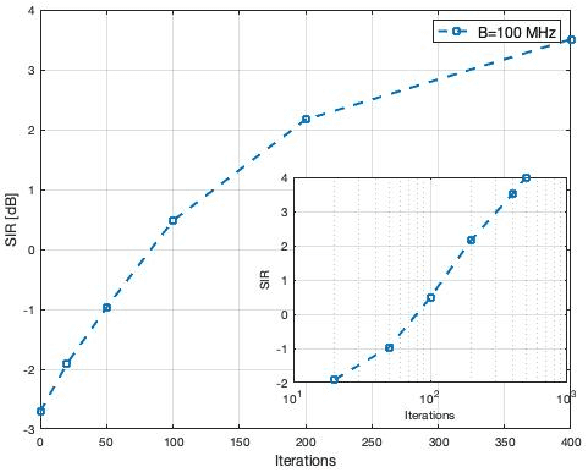
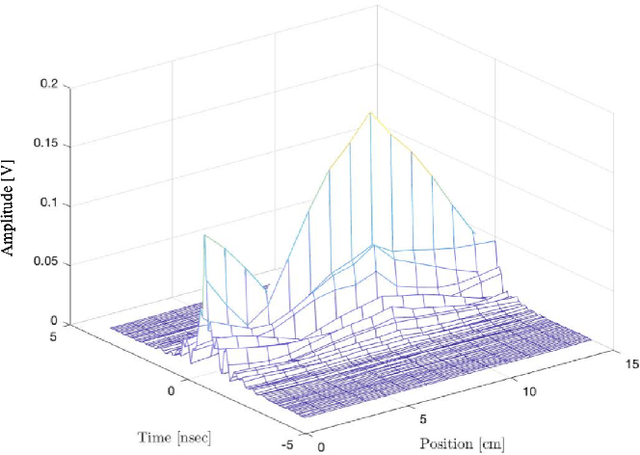
Abstract:Time Reversal (TR) has been proposed as a competitive precoding strategy for low-complexity wireless devices relying on Ultra-WideBand (UWB) signal waveforms. However, when TR is applied for multiple access, the signals received by the multiple users suffer from significant levels of inter-symbol and inter-user interference, which requires additional processing for mitigation by each receiving user. In this paper, we present an iterative Time-Reversal Division Multiple Access (TRDMA) approach that aims to dim the latter interference levels. The performance of iterative TRDMA is evaluated experimentally in a reverberation chamber that mimics a rich scattering indoor wireless propagation environment. The improved efficiency, in terms of the number of algorithmic iterations, of the proposed approach compared to conventional TRDMA, is demonstrated. We also consider a mobile user configuration, where the position of the receiver changes between the channel estimation and data transmission steps. It is showcased, even for this experimental setup, that the proposed iterative TRDMA approach is more efficient than conventional precoding schemes.
Ambient Backscatter Communications in Mobile Networks: Crowd-Detectable Zero-Energy-Devices
Oct 12, 2021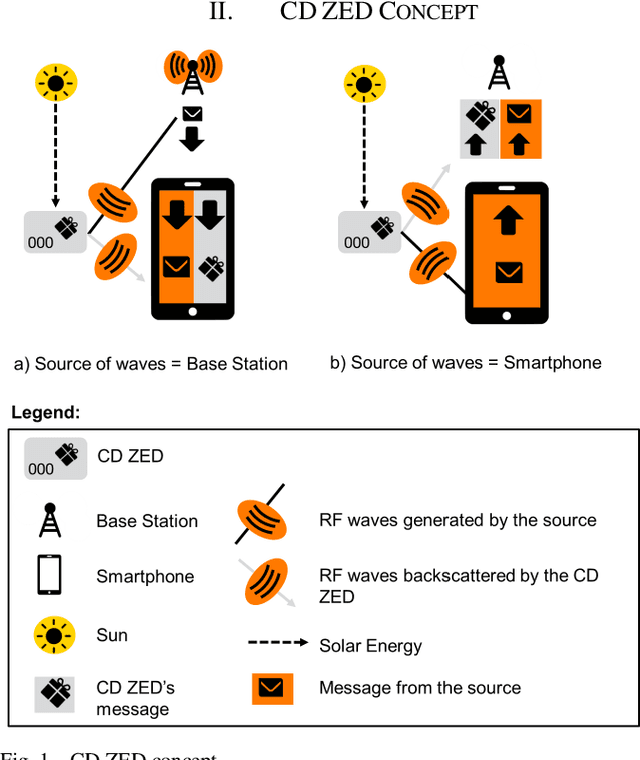
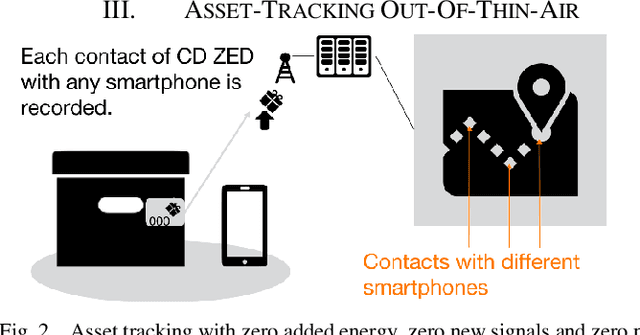
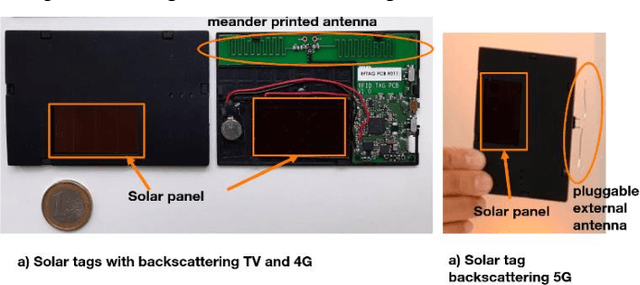
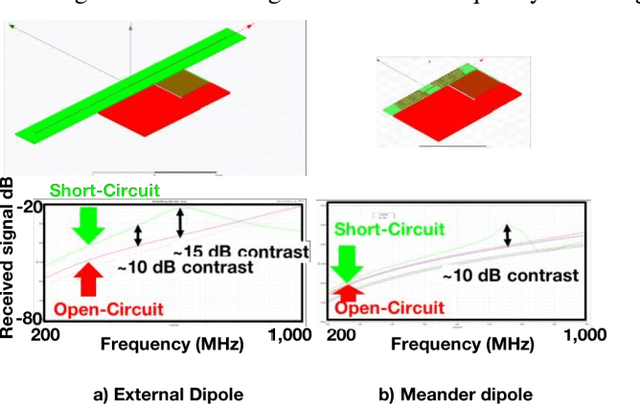
Abstract:In this paper, we introduce the new concept of Crowd-Detectable Zero-Energy-Devices. Such devices harvest solar or ambient light energy to power themselves, backscatter ambient waves to communicate, and are detected simultaneously by a smartphone connected to the network, and the network itself, as long as the device is close to the considered smartphone. Such device is a promising sustainable solution for the future of the Internet of Things. We describe an example of use case: asset tracking with zero added energy, zero new signals and zero new infrastructure in the network, thanks to the anonymous and transparent participation of smartphones connected to the wireless network. We then present our first prototypes of such devices that backscatter TV, 4G and 5G signals, and show our first experiments in challenging conditions and environments.
 Add to Chrome
Add to Chrome Add to Firefox
Add to Firefox Add to Edge
Add to Edge